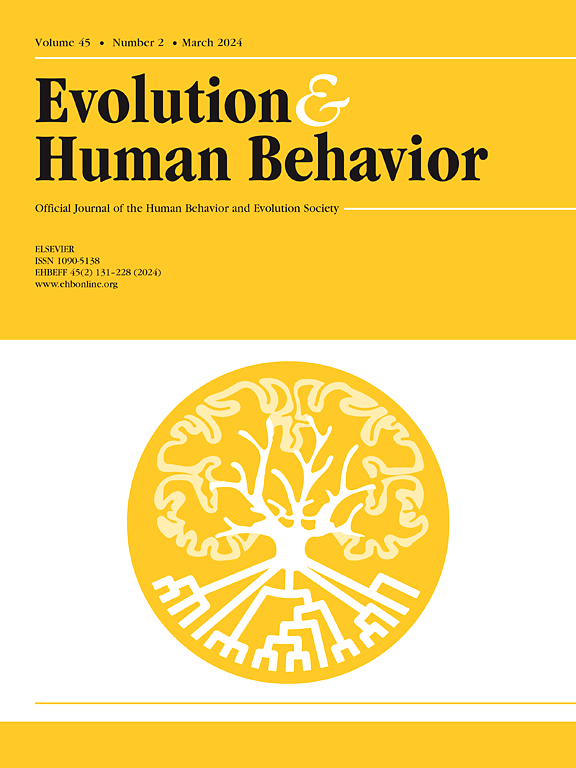Pumping the Brakes on Psychosocial Acceleration Theory: Revisiting its Underlying Assumptions
IF 3.2
1区 心理学
Q1 BEHAVIORAL SCIENCES
引用次数: 0
Abstract
Psychosocial Acceleration Theory (PAT) is a popular evolutionary psychology theory that applies the biological concept of life history theory to understanding individual differences in human behavior and development. PAT argues that during a critical period in early childhood, exposure to harsh and/or unpredictable conditions leads individuals to accelerate their pubertal maturation and engage in more mating effort alongside less parental (and potentially somatic) investment (and vice versa in response to benign or predictable cues.) A large body of literature has found small, but significant, empirical effects in support of these patterns. However, a separate body of research has increasingly revealed a number of significant challenges to the underlying assumptions of PAT. The goal of my paper was to therefore review PAT’s assumptions and any challenges to those assumptions. My review shows that all of PAT’s underlying assumptions have at least modest challenges to their validity, with the majority of those assumptions facing more severe challenges to their validity. I therefore suggest that future research on PAT should focus on addressing these potential challenges to the theory so as to offer a stronger theoretical framework with which to explain current empirical data about human life histories.
给社会心理加速理论踩刹车:重新审视其基本假设
社会心理加速理论(PAT)是一种流行的进化心理学理论,它应用生命史理论的生物学概念来理解人类行为和发展的个体差异。PAT认为,在儿童早期的关键时期,暴露在严酷和/或不可预测的环境中会导致个体加速青春期成熟,并在较少的父母(和潜在的躯体)投资的同时投入更多的交配努力(反之亦然)。大量文献已经发现了支持这些模式的微小但重要的经验效应。然而,一个独立的研究机构越来越多地揭示了对PAT基本假设的一些重大挑战。因此,我的论文的目的是回顾PAT的假设和对这些假设的任何挑战。我的回顾表明,所有PAT的基本假设至少对其有效性有适度的挑战,其中大多数假设对其有效性面临更严重的挑战。因此,我建议未来对PAT的研究应侧重于解决理论面临的这些潜在挑战,以便提供一个更强大的理论框架来解释当前关于人类生活史的经验数据。
本文章由计算机程序翻译,如有差异,请以英文原文为准。
求助全文
约1分钟内获得全文
求助全文
来源期刊

Evolution and Human Behavior
生物-行为科学
CiteScore
8.30
自引率
9.80%
发文量
62
审稿时长
82 days
期刊介绍:
Evolution and Human Behavior is an interdisciplinary journal, presenting research reports and theory in which evolutionary perspectives are brought to bear on the study of human behavior. It is primarily a scientific journal, but submissions from scholars in the humanities are also encouraged. Papers reporting on theoretical and empirical work on other species will be welcome if their relevance to the human animal is apparent.
 求助内容:
求助内容: 应助结果提醒方式:
应助结果提醒方式:


